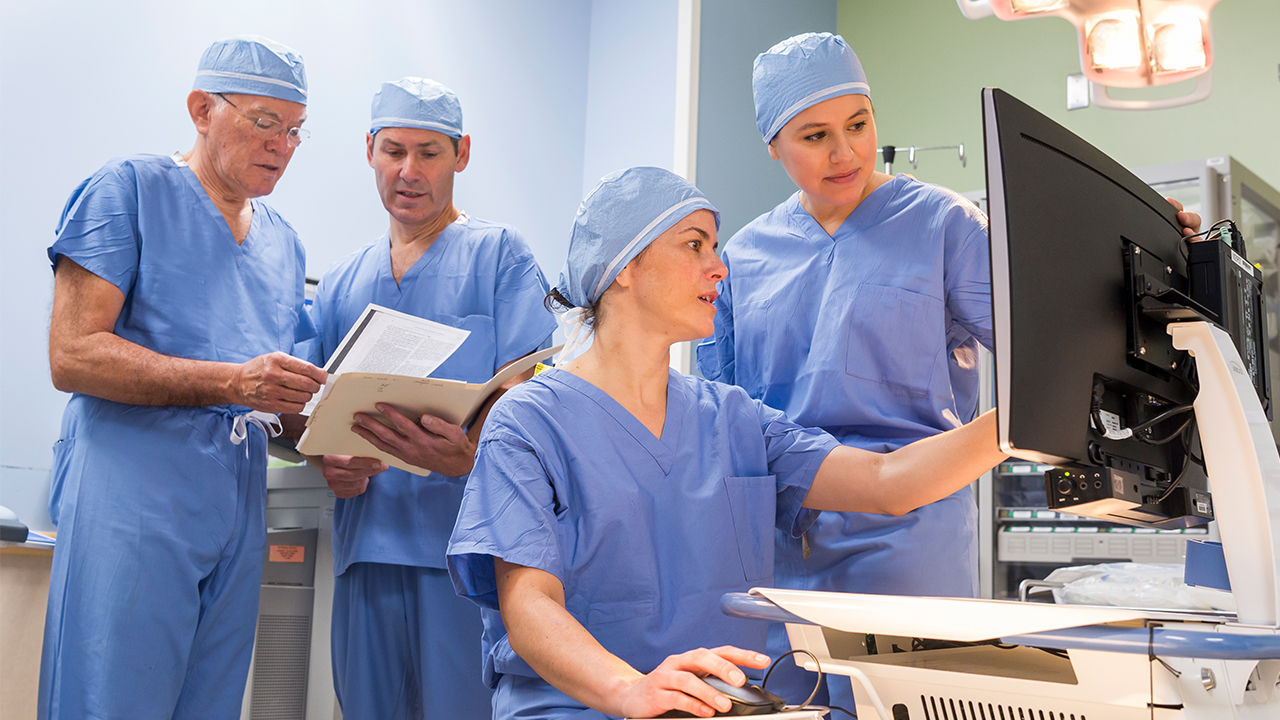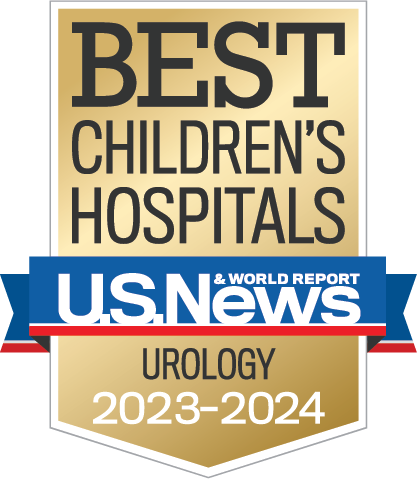- Doctors & Departments
-
Conditions & Advice
- Overview
- Conditions and Symptoms
- Symptom Checker
- Parent Resources
- The Connection Journey
- Calm A Crying Baby
- Sports Articles
- Dosage Tables
- Baby Guide
-
Your Visit
- Overview
- Prepare for Your Visit
- Your Overnight Stay
- Send a Cheer Card
- Family and Patient Resources
- Patient Cost Estimate
- Insurance and Financial Resources
- Online Bill Pay
- Medical Records
- Policies and Procedures
- We Ask Because We Care
Click to find the locations nearest youFind locations by region
See all locations -
Community
- Overview
- Addressing the Youth Mental Health Crisis
- Calendar of Events
- Child Health Advocacy
- Community Health
- Community Partners
- Corporate Relations
- Global Health
- Patient Advocacy
- Patient Stories
- Pediatric Affiliations
- Support Children’s Colorado
- Specialty Outreach Clinics
Your Support Matters
Upcoming Events
Child Life 101
Wednesday, June 12, 2024Join us to learn about the work of a child life specialist, including...
-
Research & Innovation
- Overview
- Pediatric Clinical Trials
- Q: Pediatric Health Advances
- Discoveries and Milestones
- Training and Internships
- Academic Affiliation
- Investigator Resources
- Funding Opportunities
- Center For Innovation
- Support Our Research
- Research Areas

It starts with a Q:
For the latest cutting-edge research, innovative collaborations and remarkable discoveries in child health, read stories from across all our areas of study in Q: Advances and Answers in Pediatric Health.




The Urologic Tumor Program at Children's Hospital Colorado specializes in the diagnosis and surgical treatment and/or removal of benign (non-cancerous) and malignant (cancerous) tumors of the kidney, adrenal gland, bladder, pelvis and testicles in children, teens and young adults.
Children's Colorado is the only hospital in our region with a specialized team of experts dedicated to the care and treatment of urologic pediatric tumors of the kidney, adrenal gland, bladder, pelvis and testicles.
Surgeons in the Urologic Oncology Program successfully perform minimally invasive surgery (laparoscopic and robotic-assisted surgery) and organ-sparing surgery as part of treatment for tumors. Minimally invasive surgery allows shorter recovery times for patients. Organ-sparing surgery saves the function of a kidney, adrenal gland or testicle by only removing the part of the organ that is affected by the tumor.
Why choose Children's Colorado for tumors of the kidney, adrenal gland, bladder, pelvis and testicles?
Our team specializes in caring for children, teens and young adults. We are committed to providing personalized service and treatment plans for each patient. Our care philosophy uses leading surgical techniques for the treatment of urologic oncology conditions.
Same or next-day appointments to ease your mind
We understand that not knowing if your child's tumor is cancerous is very stressful. That's why our team offers patients same or next-day appointments for the diagnosis of tumors. Appointments encompass all necessary tests and studies to help our doctors make a quick and thorough diagnosis.
An entire team of experts caring for your child
Our surgical team and the pediatric cancer specialists at the Center for Cancer and Blood Disorders treat cancerous tumors. We also work with experts from the University of Colorado and radiation cancer specialists at the University of Colorado Cancer Center. Our partnerships provide patients with the ability to have their entire course of tumor and cancer treatment in one place – at the Anschutz Medical Center.
This integration of expert teams allows us to deliver the most comprehensive and highest quality care for your child. We do our best to provide a seamless experience for our patients and families, from diagnosis and treatment, to follow-up care after treatment.
Surgeons with specialized training in pediatric urology care
The Urologic Oncology Program at Children's Colorado is led by a team of experts from multiple specialties. One of these experts is the urologic surgeon, who is specially trained in both urologic oncology and pediatric urology.
Every day, our surgeons are dedicated to the clinical care and research of tumors in the kidney, adrenal gland, bladder, pelvis and testicles in children, teens and young adults. Our expertise in pediatric treatment, oncology and urology provides your family with the most comprehensive approach to your child's condition.
Urology tumor conditions we treat
Common cancerous tumors/conditions we treat include:
- Testicular germ cell tumors are a type of cancer of the testicles that begins in germ cells (cells in the testicles that make sperm)
- Testicular stromal tumors (Leydig cell tumors, sertoli cell tumors) are a type of cancer of the testicles that begins in stromal cells (cells in the testicles that make the male hormone, testosterone)
- Retroperitoneal metastases from testicular tumors are a type of cancer that begins in the testicles and spreads to the retroperitoneum (kidney, bladder and other organs in the abdominal cavity).
- Paratesticular rhabdomyosarcoma is a type of cancer that develops from the muscle that surrounds the testicle. Sarcomas are cancers that develop from connective tissues in the body, such as muscles, fat, bones, the linings of joints or blood vessels. There are many types of sarcomas. Rhabdomyosarcoma (RMS) is a cancer made up of cells that normally develop into skeletal muscles.
- Wilms tumor (also called nephroblastoma) is a type of cancer that starts in the kidneys. It is the most common type of kidney cancer in children.
- Renal cell carcinoma (kidney cancer) is a type of cancer that starts in the kidneys, it is the most common type of kidney cancer in adults but can also occur in children.
- Kidney angiomyolipoma (AML) is the most common benign tumor of the kidney. Angiomyolipomas are made up of blood vessels, muscle and fat. Although they are considered benign, angiomyolipomas may grow and impair kidney function. The blood vessels may dilate and burst and cause bleeding. Angiomyolipomas are strongly associated with the genetic disease tuberous sclerosis, in which most individuals have several angiomyolipomas affecting both kidneys.
- Pheochromocytoma is a rare tumor that starts in the cells of the adrenal gland (small glands located on the top of each kidney).
- Adrenocortical carcinoma is cancer of the adrenal cortex (the outer region of the adrenal gland).
- Bladder or prostate rhabdomyosarcoma is a type of cancer that develops from the muscle in the bladder or prostate. Sarcomas are cancers that develop from connective tissues in the body, such as muscles, fat, bones, the linings of joints or blood vessels. There are many types of sarcomas. Rhabdomyosarcoma (RMS) is a cancer made up of cells that normally develop into skeletal muscles.
- Hereditary renal tumor syndromes
- Von Hippel-Lindau (VHL) syndrome is a rare genetic disorder with multisystem involvement. It is characterized by cysts and tumors in various parts of the body that can become malignant. It increases the risk for renal cell carcinoma and pheochromocytomas.
- Tuberous sclerosis (TSC) is a rare multisystem genetic disease that causes benign tumors to grow in the brain and on other vital organs such as the kidneys, heart, liver, eyes, lungs and skin. A combination of symptoms may include seizures, intellectual disability, developmental delay, behavioral problems, skin abnormalities, and lung and kidney disease.
- Birt-Hogg-Dubé (BHD) is a rare genetic disorder that can increase the risk of kidney cancer, renal and pulmonary cysts, and noncancerous tumors of the hair follicles, called fibrofolliculomas.
We treat other malignant (cancerous) tumors of the kidney, adrenal gland, bladder, pelvis and testicles. We also treat many benign (non-cancerous) tumors including renal cysts, inflammatory myofibroblastic tumors, and testicular cysts and microlithiasis.
The team at the Urologic Tumor Program also manages other urologic problems that oncology patients may have including bladder dysfunction related to cancer therapy (chemotherapy or radiation), hemorrhagic cystitis and infertility related to the cancer therapy.
Types of urologic tumor surgeries we offer
Kidney:
- Radical nephrectomy: removal of the whole kidney
- Partial nephrectomy: removal of part of the kidney
- Minimally invasive radical nephrectomy: removal of the kidney tumor using minimally invasive surgery
Adrenal Gland:
- Radical adrenalectomy: removal of the whole adrenal gland
- Partial adrenalectomy: removal of part of the adrenal gland
- Minimally invasive adrenalectomy: removal of the adrenal tumor using minimally invasive surgery
Bladder/Prostate:
- Endoscopic surgery: cystoscopy, transurethral biopsy or tumor removal: use of small scopes and camera to enter the bladder without incisions to remove part of the tumor in the bladder or prostate
- Partial cystectomy: removal of part of the bladder
- Radical cystectomy: removal of the whole bladder
- Partial prostatectomy: removal of part of the prostate
- Urinary diversion and reconstruction after removal of the bladder: surgery to re-route the urine and store the urine if the bladder has been removed
Testicular:
- Radical orchiectomy: removal of the whole testicle
- Partial orchiectomy: removal of part of the testicle
- Primary retroperitoneal lymph node dissection: removal of lymph nodes in abdomen where testicular cancer drains before chemotherapy
- Post-chemotherapy retroperitoneal lymph node dissection: removal of lymph nodes in abdomen where testicular cancer drains after chemotherapy
- Minimally invasive retroperitoneal lymph node dissection: removal of lymph nodes in the abdomen where testicular cancer drains by using minimally invasive techniques
Research and clinical trials for a better tomorrow
Children's Hospital Colorado is a member of the Children's Oncology Group, a national research program for childhood cancers. We are active participants in local and national research projects and are currently developing studies focused on quality-of-life issues for children, teens and young adults with tumors of the kidney, adrenal gland, bladder, pelvis and testicles. Read about some of our published research from members of our team.
Contact us
Phone: 720-777-2705

Compassionate care, wherever you are
We’re here when you need us. Telehealth appointments are available across every specialty, so you can get the high-quality care we’ve always offered from the comfort, privacy and convenience of home.
See if telehealth is right for you



 720-777-0123
720-777-0123




 At Children’s Hospital Colorado, we treat the big things, the small things and everything in between.
At Children’s Hospital Colorado, we treat the big things, the small things and everything in between.